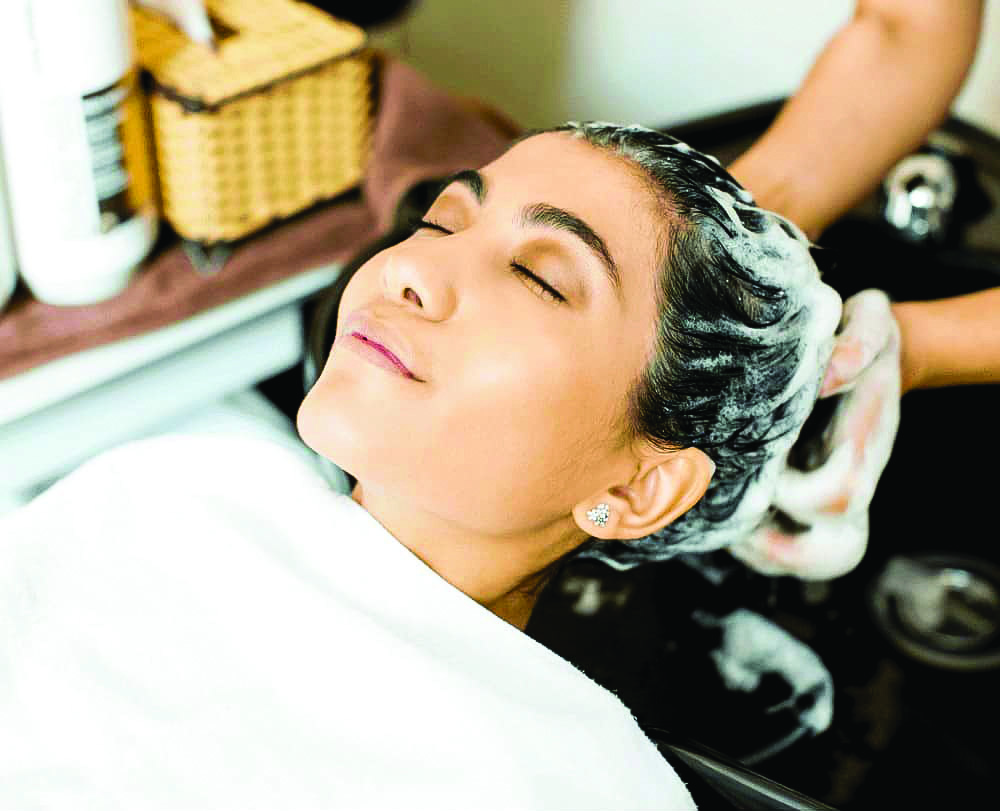Even as the air around us seems clean right now, most of us are dreading the months to come. The concerns are well in place considering the recurrent spike in pollution every year usually after Monsoon, triggered majorly by numerous factors such as burning of fossil fuels, industrial & vehicular emissions as well as agricultural practices such as waste burning etc. While pollution impacts us in many ways, the effect of it on hair health cannot be ignored. Though shieldingthe head with scarves or hats helps avoid direct exposure to pollutants, it is definitely not enough to ensure good hair health.
There are some traditional practices that are highly effective in protecting hair from pollution, like using natural oils such as coconut, amla or cold-pressed sunflower oil before stepping out. These oils help create a protective barrier against pollution and keep the hair nourished. One can also use Ayurvedic herbs like henna, bhringraj, etc., as they strengthen hair and address hair issues. These herbs have properties that help protect the hair from environmental damage. And of course, a healthy diet is a must as what’s strong on the inside can better fight problems outside. A nutrient-rich diet, including fruits and vegetables, contributes perfectly to hair health.
A lot of us don’t even know the right way to wash our hair. Use a good washing technique with warm or cold water, as hot water often dries out the hair. Also, opt for natural products free of sulfates, parabens and salt etc to remove impurities accumulated daily, such as pollutants and excessive oil secretion. Use shampoos and conditioners that contain mild cleansing agents, with a balanced pH and Brazilian and Indian organic extracts that gently cleanse while restoring the hair. This will ensure better hair health. One must further avoid rubbing the towel on hair vigorously after washing, as it can cause friction and breakage. Instead use a soft cloth to just wrap your hair, which effectively absorbs all the water.
Hydration is another key factor to ensure your hair are in best health. Use Color Fixation Hair Mask on your hair once or twice a week. Make sure its formulation is enriched with natural and plant-based active ingredients from India and the Amazon that further promote hydration, intense nourishment, and restoration of the hair. For those who love coloring their hair, saying no to harsh chemical-based hair dyes will be a good idea. Henna is a better alternative to such dyes, and for those who find henna messy, henna cream can also be used. Developed with conditioning agents, not only does it color white hair and tone the hair, but it also provides a complete treatment from roots to ends, replenishing nutrients and hydrating the hair, leaving it colored and revitalized. It is free from ammonia and its by-products like ethanolamine and triethanolamine, heavy metals, PPD, and resorcinol.
Unlike other colors that dry out and damage the hair and cannot be used frequently, Henna Cream Color can be used as often as desired, with no time intervals between applications, making it essential in all seasons. Such practices will help keep the hair healthy and protected against the harmful effects of pollution.
The author is the Founder & CEO, Surya Brasil.























